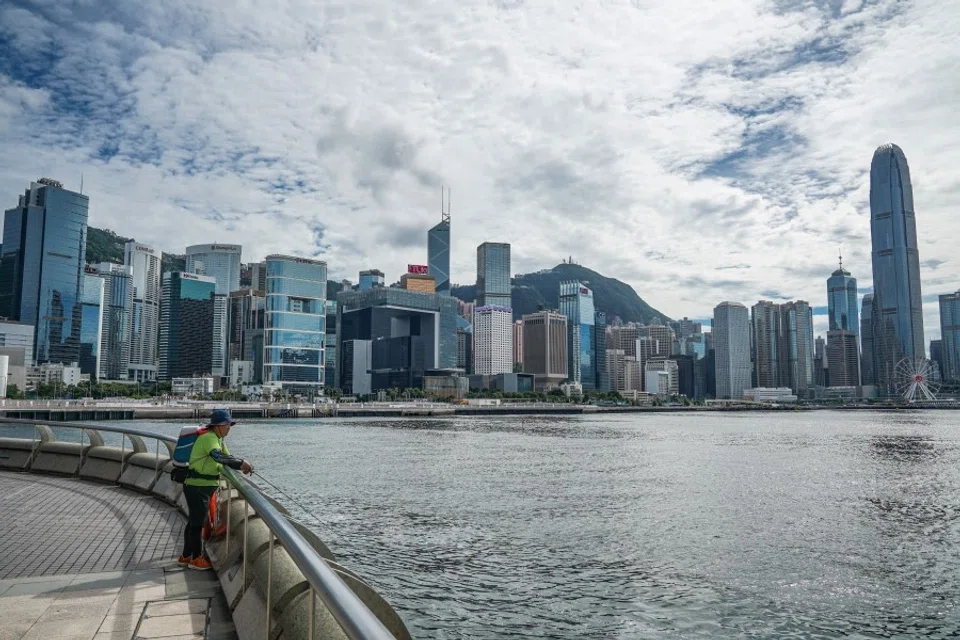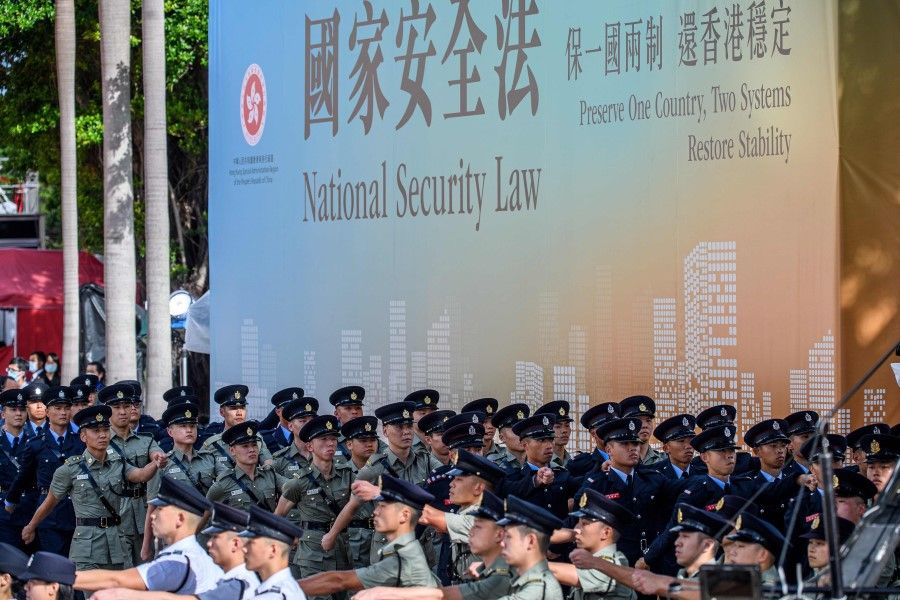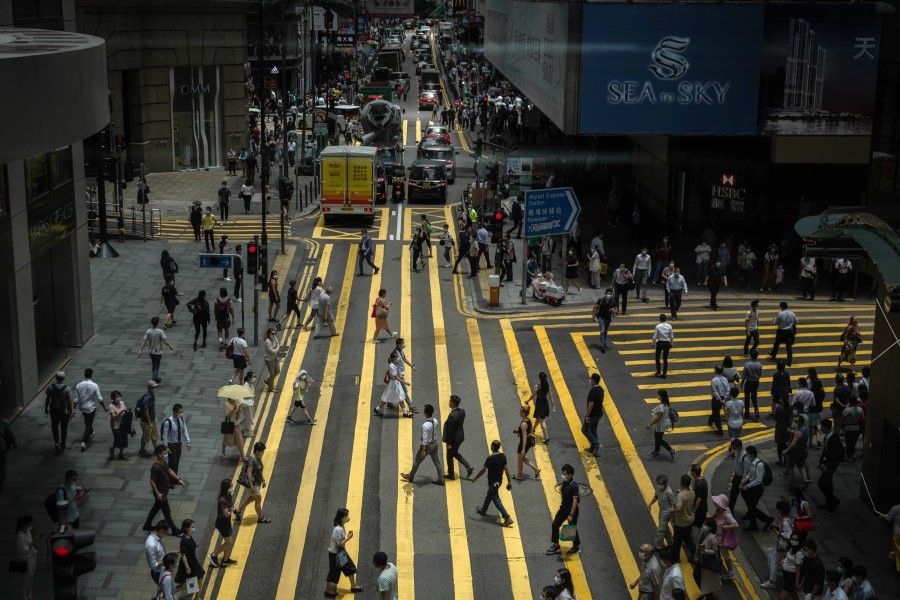End of special status with US will have little impact on Hong Kong's financial industry

The US government's revoking of Hong Kong's special status under US law has sparked concerns that Hong Kong may not be able to retain its status as an international financial centre. However, academics interviewed feel that US sanctions are not as strong as expected, and will have limited impact on Hong Kong's financial industry.
US President Donald Trump signed the Hong Kong Autonomy Act along with an executive order on 14 July, in response to China imposing a national security law on Hong Kong. The move has increased tensions between China and the US, and sparked intense political debate in Hong Kong.
Regina Ip, Executive Council and Legislative Council (LegCo) member for the New People's Party, criticised the US measures as "barbaric and unreasonable" on 15 July, calling it a retaliation against the national security law, and an attempt to dent Hong Kong's constitutional status.
... in the past year, Hong Kong chief executive Carrie Lam has personally destroyed Hong Kong's one country, two systems principle and sparked anger among other countries... - Pro-democracy LegCo member Jeremy Tam
Ip felt the move will affect academic exchanges and mutual legal assistance in criminal matters between Hong Kong and the US, but will not affect Hong Kong's status as an international financial centre. She said the most ridiculous move by the US is imposing sanctions on Hong Kong officials, where officials enforcing the national security law can be arrested or detained; this would lead to a chilling effect, and probable retaliatory measures by China's central government as well as the SAR government.

Pro-democracy LegCo member Jeremy Tam, who previously lived in the US, noted that in the past year, Hong Kong chief executive Carrie Lam has personally destroyed Hong Kong's one country, two systems principle and sparked anger among other countries, leading to Trump signing the Hong Kong Autonomy Act and ending Hong Kong's special status. He sarcastically described these as Lam's "lasting contributions".
Tam felt that China has always regarded Hong Kong as its "white gloves" (白手套, a "clean front" for activities), using Hong Kong's advantages to do business with foreign investors. But once Hong Kong's "two systems" is deemed as non-existent, it will create a domino effect. He said, "When that happens, I believe that not only will the Hong Kong economy suffer, mainland China will also lose opportunities to purchase foreign currency and do business with overseas investors."
"Over time, both overseas investors and Hong Kong residents will understand that there is no need to worry at all." - Hong Kong chief executive Carrie Lam
As of this writing, the Hong Kong government has not officially responded to the US measures. But in an interview with Xinhua yesterday, Carrie Lam said she was not worried about so-called US sanctions on Hong Kong, as financial sanctions will hurt not only Hong Kong but also US companies.
She stressed that while the US and the West are taking measures to shake people's confidence in Hong Kong, the national security law is meant to strengthen confidence. "Over time, both overseas investors and Hong Kong residents will understand that there is no need to worry at all," she said.
Associate Professor Billy Mak of the Department of Finance and Decision Sciences at Hong Kong Baptist University said to Zaobao that the US sanctions are not as heavy as expected, and would have limited impact on Hong Kong for now.
"Sanctions are like burning someone else's house; your own house ends up getting burned as well. The US financial crisis of 2008 was caused by its own financial institutions." - Associate Professor Billy Mak, Hong Kong Baptist University
He explained that the end of Hong Kong's special status means that Hong Kong is now like other cities in mainland China, with no more preferential tax rates. But Hong Kong's annual exports to the US are worth only a few trillion Hong Kong dollars, which is not much.

He said, "The US restrictions on imports of high-tech products to Hong Kong will also not have much impact. Hong Kong can get similar technology from elsewhere."
As for the US's claim that it will impose sanctions on financial institutions doing business with officials and entities supporting the Hong Kong national security law, Prof Mak feels Washington may not act on it. HSBC, which was criticised by the US, is the largest bank in the UK, while four of the ten largest banks in the world are from China.
Hong Kong continues to have an edge over Shanghai
Prof Mak said, "Sanctions are like burning someone else's house; your own house ends up getting burned as well. The US financial crisis of 2008 was caused by its own financial institutions."
... as there has always been a national security law in mainland China, overseas companies that want to do business in China will not be swayed by whether or not there is a national security law in Hong Kong. - Prof Mak
He stressed that in the short term, the end of Hong Kong's preferential status will affect foreign investors' confidence in Hong Kong, but as there has always been a national security law in mainland China, overseas companies that want to do business in China will not be swayed by whether or not there is a national security law in Hong Kong. The fact is that Hong Kong still has an edge over Shanghai in terms of globalisation, and overseas companies will still enter the Chinese market through Hong Kong.
Prof Mak felt that technically, the US can still impose sanctions on Hong Kong by restricting the flow of US dollars in Hong Kong, but this would be a double-edged sword that would hurt both China and the US. If China fulfils its part of the phase one trade deal with the US, the amount would then not be tallied in US dollars. In the long term, affected entities and countries would be forced to stop using US dollars, which would accelerate a move away from it. As such, this measure is unlikely.
Related: US sanctions on Hong Kong: How far will they go? | The fight over Hong Kong: Does it belong to China or the world? | National security law for Hong Kong: The US will not back down, so where are we headed? | National security law for Hong Kong: Will America's 'smart sanctions' work against China? | Why Beijing is taking the risk to push through the national security law and rein in Hong Kong
